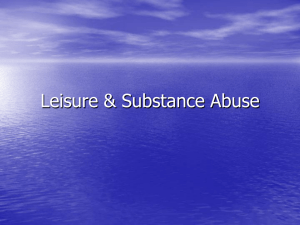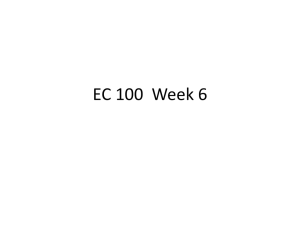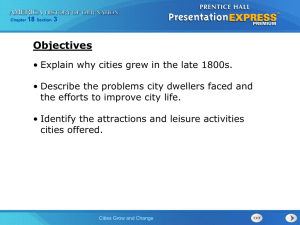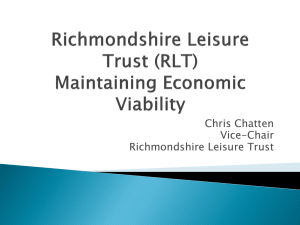Meanings of Leisure
advertisement
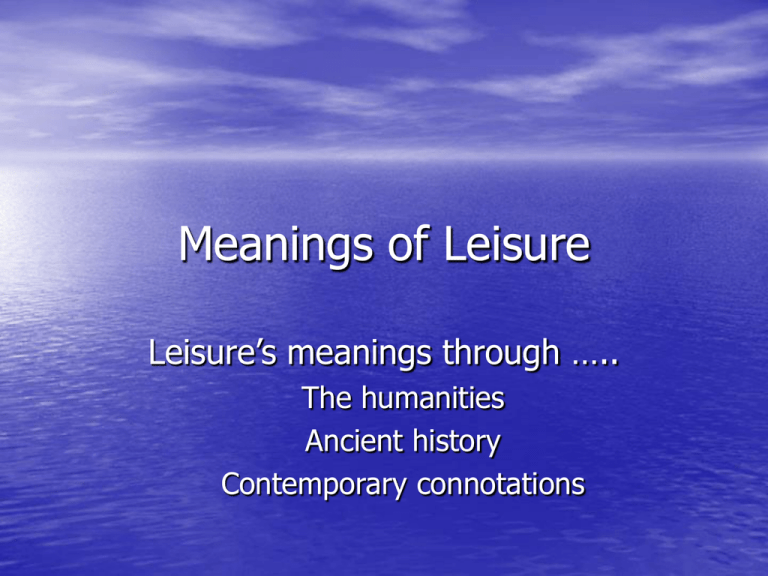
Meanings of Leisure Leisure’s meanings through ….. The humanities Ancient history Contemporary connotations Using the humanities to understand leisure meaning • Humanities are areas of creation whose subject is human experience. • Related terms: – Impressionism – Aesthetic – Arête Leisure and Literature Greeting cards, poems, novels, advertising, books, short stories and poems can all portray leisure: “Hand of Cards” from Four Against Everest by Woodrow Wilson Sayre “Each one of us is dealt a hand of cards by life. It’s not so much the hand you get dealt but what you do with what you’ve got.” Another literary image of leisure A scene from “The Big War” by Anton Myrer (author of the bestselling “The Last Convertible”) where Al, a marine, is describing in a letter home what it is like on board the transport ship where the marines are bored with nothing to do … Claude Monet Regatta Edouard Manet “Masked Ball at the Opera” Pierre August Renoir “Dance at the Moulin de la Galette” Edgar Degas “Absinthe” Music: A basic and universal activity of humans • It reflects much about a society and subcultures within that society. • It has various styles. •Many popular songs describe impressions and meaning of leisure experiences. In summary, the humanities of literature, art and music offer many glimpses of leisure meaning • Can you think examples that portray leisure as … – – – – – – – – As As As As As As As As achieving the good life? emotional outlet? peace and quiet? contact with nature? idleness? excitement? sociability? …..? Leisure legacies from ancient cultures: The arts Contemplation Learning Mass spectacle Festivals and holidays Lush gardens Sports The Origins of the Leisure Class • In 1899 Thorenstein Veblen wrote a book called “The Theory of the Leisure Class” • Veblen described the leisure class as: A group of people who had goods but did not have to work First developed in barbarian culture Superior to other classes Ancient Greece: Plato • Plato’s teaching creates a foundation for examining meaning in leisure – A central role of education was to enlighten the students as how much work was necessary, how to use free time, and its value to life. – Schole and Ascholia – The highest purpose of work was to escape into leisure Ancient Greece: Aristotle • Leisure was activities performed for their own sake • The goodness of humans was found in their power to reason • There were some downsides to the ideal of Greek leisure Leisure in Ancient Rome • Similarities and differences with Greek culture • Leisure versus work • Leisure and social control Leisure in Contemporary Culture Free Time • Time free from the obligations of work (subsistence) and existence (eating, sleeping, and so on). • Leisure is time free for making personal choices • Free time can be regarded as privilege or as a chance to escape Leisure in Contemporary Culture: Activity • The view of many recreation professionals • Recreation and leisure are often used synonymously • Potential problem Leisure in Contemporary Culture State of Mind • Leisure is defined by the meaning it holds for the individual, by the individual, from his or her own point of view • Self-expression, self-achievement, and self-actualization So …What is leisure? • No one single memorizable, right-answer definition of leisure • Complex • Make conscious decisions What next? • Make sure your ‘notes page’ is completely filled in with notes from this assignment and the assigned reading. • Complete the unit activity • Complete the unit reflection paper • Complete the unit quiz

